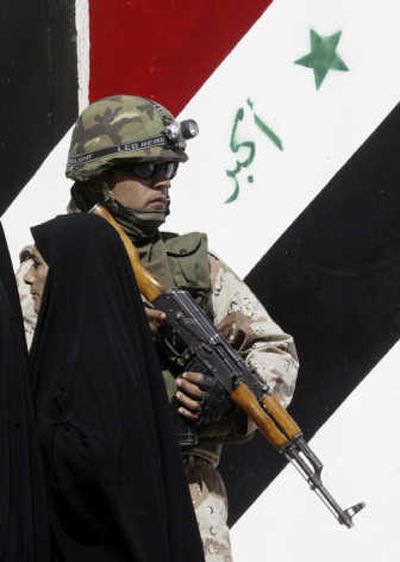Insurgents step up levels of violence

BAGHDAD – Insurgents are stepping up a campaign of violence across Iraq during the holy month of Ramadan, staging six car bomb attacks on Wednesday that killed at least 30 people and wounded dozens, U.S. and Iraqi officials said.
“We have seen an upturn in levels of violence in the last few days,” Maj. Gen. Kevin Bergner, the military’s chief spokesman in Iraq, told reporters. Citing past experience, he said extremists “will continue to increase levels of violence during the period of Ramadan,” which began Sept. 13.
The level of violence during the first two weeks of Ramadan, the military said, was roughly equivalent to 2005, but down 38 percent from last year. Still, the violence illustrates the challenges in stabilizing the country, even as thousands of additional U.S. troops have arrived in Baghdad and surrounding areas this year to stem sectarian tensions and buy time for national reconciliation.
In Internet postings two weeks ago, the Islamic State of Iraq, an umbrella group believed to have been founded by the Sunni insurgent group al-Qaida in Iraq, vowed to mount a new offensive during Ramadan that would target among others tribal leaders and officials who have allied themselves with U.S. forces. On Monday, a suicide bomber detonated his explosives-laden belt at a reconciliation gathering of Sunni and Shiite tribal leaders in Baqubah, the capital of Diyala province, killing 24 people, including the city’s police chief.
No groups asserted responsibility for Wednesday’s attacks, although all bore the trademark of al-Qaida in Iraq. Bergner placed the blame squarely on the extremist group, saying that it continued to stage “spectacular attacks” and “incite sectarian violence” that he said was the most significant near-term security threat to Iraq.
The deadliest assault on Wednesday occurred in the mostly Shiite neighborhood of Bayaa in southwest Baghdad when twin car bombs detonated in an outdoor market as Iraqis were preparing for the evening Iftar, the feast that ends the sunrise-to-sunset fast during Ramadan. The blasts, minutes apart, killed eleven people and injured 28 and shattered nearby shops and houses, police said.
Near the Syrian border, a suicide truck bomb exploded in a village near Sinjar, 240 miles northwest of Baghdad, killing 10 people and injuring nine, said Kiffah Mohammed, director of Sinjar Hospital. The blast was apparently intended for a Sunni tribal leader who was opposed to al-Qaida in Iraq. The leader’s son was among those killed, according to news agencies.
In Mosul, a car bomb exploded at the Mosul courthouse, which was under construction, killing three people and injuring more than 40, the U.S. military said in a statement.
In the northern village of Sharqat, two more suicide car bombs, one targeting an Iraqi police convoy, the other a police station, killed two policemen and six civilians while injuring 34, the military said.
On Tuesday morning, Iraqi special operations forces, accompanied by U.S. advisers, raided a prestigious military academy in the Baghdad district of Rustamiyah, detaining scores of cadets and instructors in connection with the kidnapping and murder of the college’s director, as well as the kidnapping of his successor, who was freed in the raid.